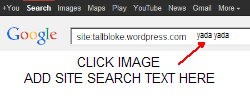Over on the WUWT TwentyEightGate discussion, commenter ‘mfo’ has distilled the salient points from the IBT’s submission to the BBC trust’s Science Impartiality Review. I have number them for easy reference in comments. Who are the IBT? They are the lobbying group led by Joe Smith of the Open University who set up the seminar where the BBC decided to stop giving the public balanced climate reporting which includes climate sceptical viewpoints.
http://www.ibt.org.uk/about_us.php
“The International Broadcasting Trust is an educational and media charity working to promote high quality broadcast and online coverage of the developing world. Our aim is to further awareness and understanding of the lives of the majority of the world´s people – and the issues which affect them.”
“Our work focuses on three main areas of activity:
– lobbying Government, regulators and broadcasters
– dialogue with the main public service broadcasters
– research on broadcast and online coverage of the developing world”
mfo says:
The IBT is clearly an influential and partisan organisation and represents the bias it purports to be against. An example is the following submission to the BBC Trust, demonstrating extremist and autocratic viewpoints:
Submission by the International Broadcasting Trust to the BBC Trust’s
Science Impartiality review
Some quotes:
In this paper we look in detail at the way in which climate change has been
reported across the BBC and we make a series of practical proposals…
1) Journalists and programme makers should resist ‘debate’ framings –
putting up opposing ‘pro’ and ‘sceptic’ climate change science opinion
– that carry with them the implication of a balanced debate between
equally informed players.
2)…this return to a ‘debate’ framing is a retrograde step in terms of
appropriate representation of the science, and even packaging and marketing
a programme in this way may help to further delay comprehensive debate of
actions to mitigate and adapt to climate change.
3) There have been many other instances in advance of the Panorama over the
last six and more months where broadcasters have sought to convene a
‘climate change debate’ despite the distortions such a framing creates in the
public mind.
4) It is difficult to identify an appropriate collective noun: some deny a well established body of
science, but it has been suggested that the ‘denier’ term appears to be a rhetorical device that seeks guilt by association with holocaust denial. This is a shrill and inappropriate move. At the same time ‘sceptic’ is problematic as scepticism is a quality pursued in all good scientific and journalistic practice. ‘Contrarian is the term applied in this paper as it suggests a conscious decision to take a position contrary to the mainstream of opinion.
5) This is particularly important where public service broadcasters give space to climate contrarian claims on the science that have not been peer reviewed. They must demand of it the same rigour that climate science which feeds into the IPCC has been subjected to.
6) Alex Lockwood suggests, borrowing a term from computer science, that
‘climate disinformation online is a form of cultural and political malware every
bit as threatening to our new media freedoms, used not to foster a forum for
open politics but to create… a “multiplicity of fragmented publics” that harms
not only our democracy, but our planet.’ (Lockwood 2008).
7) Polling suggests that attitudes have shifted amongst a significant
minority of the public, with an increase of around 10% in the proportion of the
US and UK populations that are sceptical of climate change over the last
couple of years (see Leiserowitz 2010 for US figures and Spence et al 2010 for
UK figures)
8) Editors and programme makers have sought to allow this body of
the population to hear their views represented. While there are many areas of
political or ethical debate where such balancing is desirable, we argue that in
the case of reporting of scientific knowledge where there is a high degree of consensus amongst legitimate authorities, this leads to perverse outcomes
and serves to mislead the public.
The full document is available here:
http://www.ibt.org.uk/all_documents/Submissions%20Key/Response%20to%20the%20BBC%20Trust’s%20science%20impartiality%20review.pdf






The information above is an education of how to introduce censorship in a democracy. The reason being the common which is greed and power for individuals and organizations.
The principle of accepting consensus by definition means that scientific methods have been abandoned.
The consensus principle rules IPCC and also IBT. The infamous reports by IPCC are formulated by voting among politicians. The latter is seen in the text above:
“…..we argue that in the case of reporting of scientific knowledge where there is a high degree of consensus amongst legitimate authorities, this leads to perverse outcomes
and serves to mislead the public.”
Truth is that IPCC and IBT use to concept of science to fool the public by introducing FAKED science.
The anthropogenic greenhouse effect (CAGW) is nothing but an unverified hypothesis that has been declared a fact by some scientists who have been accepted as authorative by IPCC. An unverified hypotheis has zero scientific value. I have been asking CAGW promoters for verifications by observational evidence for more than 20 years. None has shown up. The only supporting evidence seem to be majority voting among computer programs (GCM´s which are unverified, too).
A scientific valid result has to be based on scientific methods. It means that the result has to be reproducible (verified) by independent researchers. The result must not have anything to do with either consensus or authority. It has to be based on observational evidence and verified physical theories. It should also be mentioned that some physical systems are so complex that their outputs are hard and even impossible to predict. Climate change is the output of such a system, at least at the contemorary level of available scientific knowledge.
The reason why science is (politically) important as such is the tremendous trust the public has in scientists since they have recognized the technical and medical revolution that has taken place during the last centuries. The public knows that thisis a result of scientific progress. IPCC and IBT (actually politicians and special interests) need to claim the support of science to get the public on their side. One result has been the corruption of many scientists and even part of university organizations. It all very sad and indicates a decline in the potential future evolution of our civilization.
In their latest Annual Report they boast
We have continued to work in partnership with Channel 4 and the BBC, holding regular meetings to discuss how they plan to implement the international aspects of their remits. We have also worked with other broadcasters including Sky News.
I am not sure what business it is of theirs what the BBC do and it is clearly an interference with the BBC’s role as an independent broadcaster.
They even brag that “The BBC Trust has agreed to amend the BBC2 licence as a result of lobbying by IBT.” It is the statutory role of the Trust to protect the independence of the BBC. Why have they not only allowed an outside vested interest group to influence BBC policy, but actively supported this?
I have asked the Trust to comment on this contradiction and got an auto reply telling me I would probably not get a reply!!
I have also asked the BBC under FOI how many meetings they have held with the IBT etc.
More info here.
TB are you sure of the connection between Joe Smith and IBT, I thought his involvement was through CMEP with Roger Harrabin and IBT was basically Mark Galloway?
Lord B, Joe is the busy guy,
he gets his fingers in every pie.
http://www.open.ac.uk/socialsciences/staff/people-profile.php?name=Joe_Smith
“For over a decade (1996 – present) I have designed and facilitated strategic level seminars aimed at improving coverage of complex environment and development issues, working with the BBC and other partners. This work has been devised and implemented in partnership with the BBC’s Environment Analyst Roger Harrabin.”
” Pro bono advisor:
To diverse NGO and international bodies: Invited peer reviewer, complaint to Ofcom relating to Channel 4 The Great Global Warming Swindle programme; Jury Chair, Oneworld media awards 2008, Environment prize; Judge, British Environment and Media Awards: 2003 –”
Publications:
Smith J. (2011) IBT submission to the BBC Trust Review of Impartiality in Science Coverage (submitted without name credit)”
From http://www.open.ac.uk/socialsciences/staff/people-profile.php?name=Joe_Smith
“I have consulted for, among others, the BBC, the European Environment Agency, the International Broadcasting Trust, Reuters, the NHS and the Sainsbury Family Trusts. I have had outreach / Knowledge Exchange projects supported by the Bowring Trust (£5K), BG Group (£15K), Vivendi (£20K), WWF UK (£15K), Dept of Environment (£15K) and the Tyndall Centre (£15K).”
That would suggest that he produced ‘IBT submission to the BBC Trust Review of Impartiality in Science Coverage’ as a consultant not as someone who was a part of IBT.
I suspect that you are as shocked as I at how the BBC can be influenced by soothsayers but I would suspect that the seminars were organised by CMEP Joe Smith, Roger Harrabin with the assistance of IBT Mark Galloway under the influence of the Tyndall Centre.
Ties in with climategate, email 3411:
‘This forms part of the Cambridge Media and Environment Programme of seminars
that I run jointly with Roger Harrabin of the BBC R4 Today Programme (see:
www-cies.geog.cam.ac.uk/www-cies/MediaSems.html
for more information on these). You will be aware that the Programme forms
part of the Cambridge contribution to the work of the Tyndall Centre.
http://web.archive.org/web/19980124075535/http://www-cies.geog.cam.ac.uk/www-cies/MediaSems.html
Well he hasn’t declared the payment, so maybe he’s chummy enough with Mark to do it for free.
No shortage of material to comment on in the IBT submission.
The authors describe how difficult it is to arrive at an appropriate collective noun for “deniers”, “sceptics” or “contrarians”. In my opinion this is due to the innumerable possible reasons that people may have for disagreeing with the concept of cAGW as embodied by the IPCC.
The “consensus view” is a grand-synthesis that could be brought low by any number of the constituent components being proved false. That is why good science is often such a painstakingly slow process. For example: at a very simple level it is possible to agree with the “A(nthropogenic) G(lobal) W(arming)” bit but, because the cumulative effect may be vanishingly small, it is also possible to simultaneously disagree with assertions that it is a potentially catastrophic problem.
The authors then go on to imply that the term “sceptics” is inappropriate because said sceptics have not given due consideration to the issues or are not competent to do so. I am confident in my ability to demonstrate myself competent to assess some parts of the “consensus” science. I wonder which parts of the grand-synthesis the authors think I have ignored or am incapable of understanding? Looking at the bibliography of the submission, I suspect I would come off rather better than these anonymous IBT authors if they wanted to have an I’ll-show-you-mine-if-you’ll-show-me-yours.
The authors might also do well to examine their own reasons for wanting to have a collective noun for people who disagree with the IPCC consensus. It may well help describe the issue better than previously.
Last, but not least, I do not think any of my objections to anything need to be peer reviewed by any person or any international “charity”, least of all the IBT.
“is an educational and media charity working to promote high quality broadcast and online coverage of the developing world.”
The beauty of “charity work” is that it’s “non-profit,” which allows groups to receive anonymous gifts and matching grants, and then claim independence from those interests. But this is nothing compared to the arrogance and self-righteousness of inflicting sustainability through legislative fiat on people who do not want it.
“… the developing world. Our aim is to further awareness and understanding of the lives of the majority of the world´s people – and the issues which affect them.”
The Developing World, is that not China and India and others who would love to see the EU and USA dragged down to third world status?
It was Clinton who got the USA into the WTO which is now run by Pascal Lamy late of the EU. Clinton and Tony Blair are both advocates of the “Third Way” and Lamy is blathering about global government. It was also Clinton who dragged China into the WTO.
Two of the IBT members are Islamic Relief and Muslim Aid, charity organisations. But hold on.
UBS closes Islamic Relief account over terror risk – November 9, 2012
The U.K. based Muslim charity Islamic Relief has had its account closed and zakat donations to its account blocked by Swiss bank UBS due to counter-terror concerns. Islamic Relief is the world’s largest Islamic non-governmental organization, and Israel has previously accused it of funding Hamas.
UBS’s action is similar to the decision made by Minnesota banks to cease remittance services to Somalia. The risk that such transactions will be used for terrorism is simply too great a risk for the banks to bear.
(…)
Muslim Aid: Hopeless Charity Commission whitewashes yet another Islamist group – December 17th, 2010
The Charity Commission, Britain’s most ineffective regulator, has once again whitewashed an organisation linked to fundamentalist Islam.
In March this newspaper reported on allegations that the charity Muslim Aid, a close associate of the fundamentalist Islamic Forum of Europe, had channelled funds to eight organisations linked to the terrorist groups Hamas and Palestinian Islamic Jihad.
Muslim Aid has admitted funding two of the organisations and has repeatedly refused to deny funding the other six.
Now, however, the Commission has published what it is pleased to call a “regulatory case review” into the charity saying that allegations of terrorist links are “unsubstantiated.”
(…)
http://blogs.telegraph.co.uk/news/andrewgilligan/100068829/muslim-aid-hopeless-charity-commission-whitewashes-yet-another-islamist-group/
how difficult it is to arrive at an appropriate collective noun for “deniers”, “sceptics” or “contrarians”
Not so difficult perhaps. Webster’s says…
Unbeliever (1) one that does not believe in a particular religious faith, (2) one that does not believe : an incredulous person : doubter, skeptic
Risible: “They must demand of it the same rigour that climate science which feeds into the IPCC has been subjected to.”
Which is to say none? The only “rigor” is in making sure no toes stray over the line.